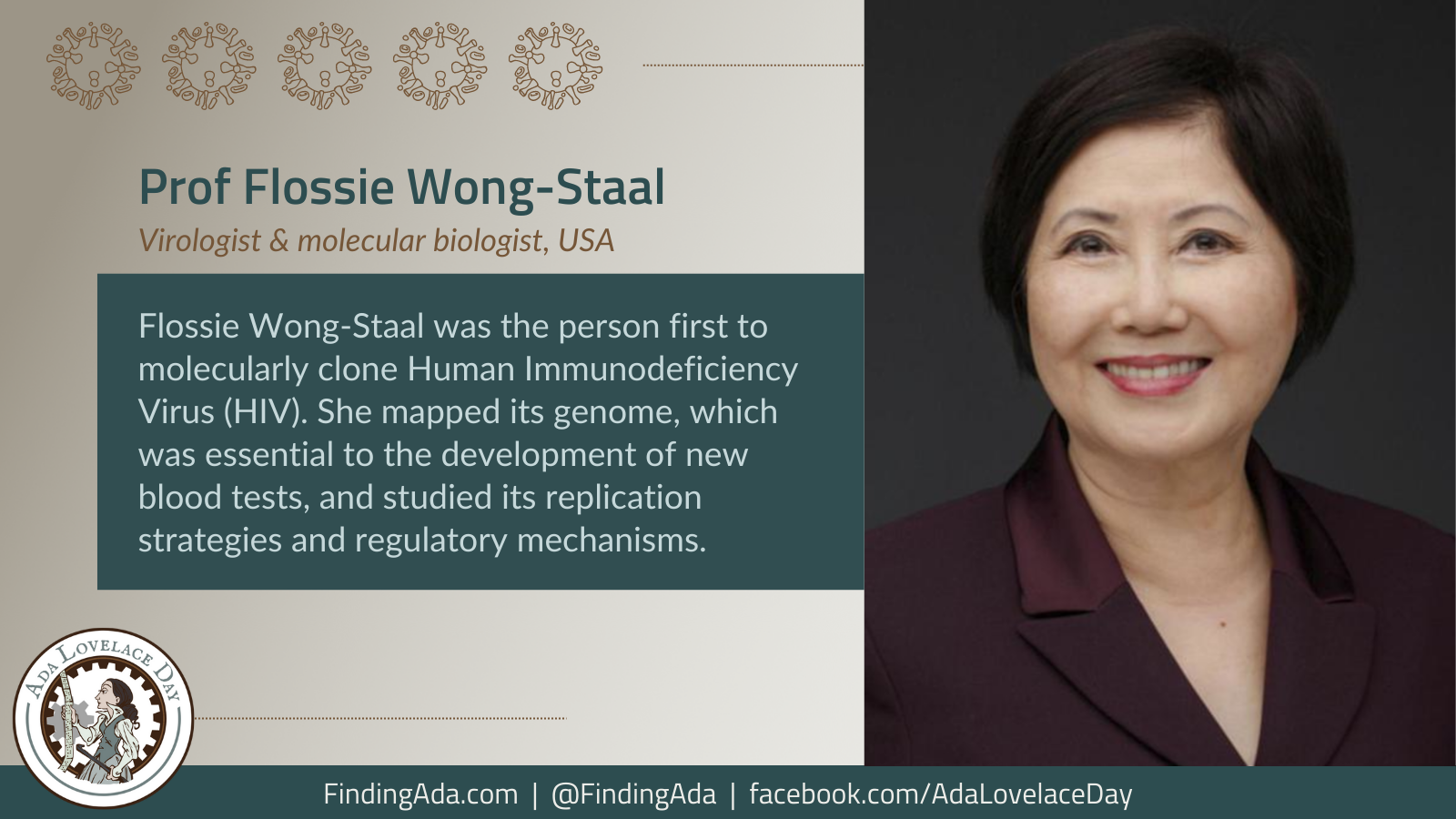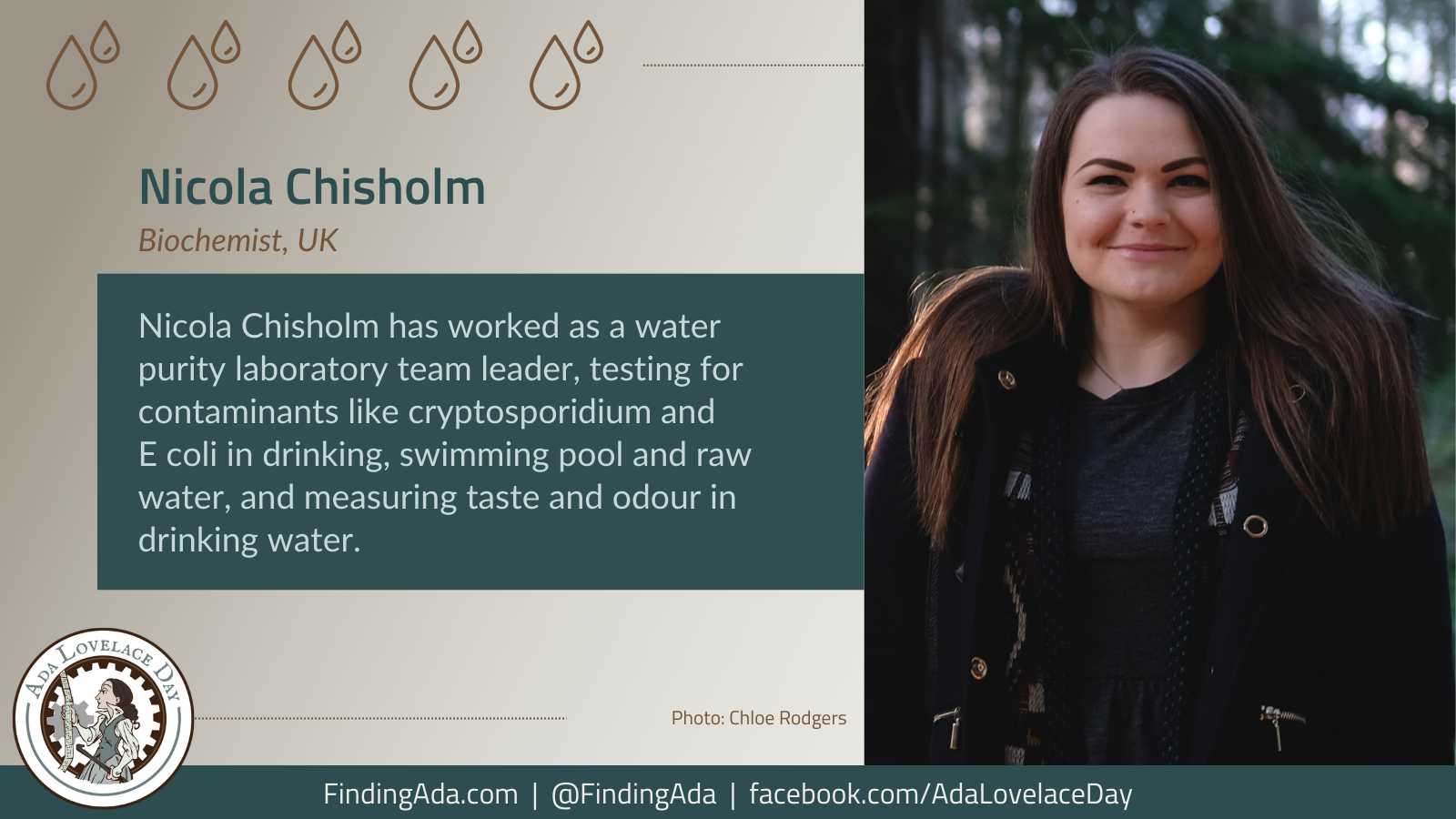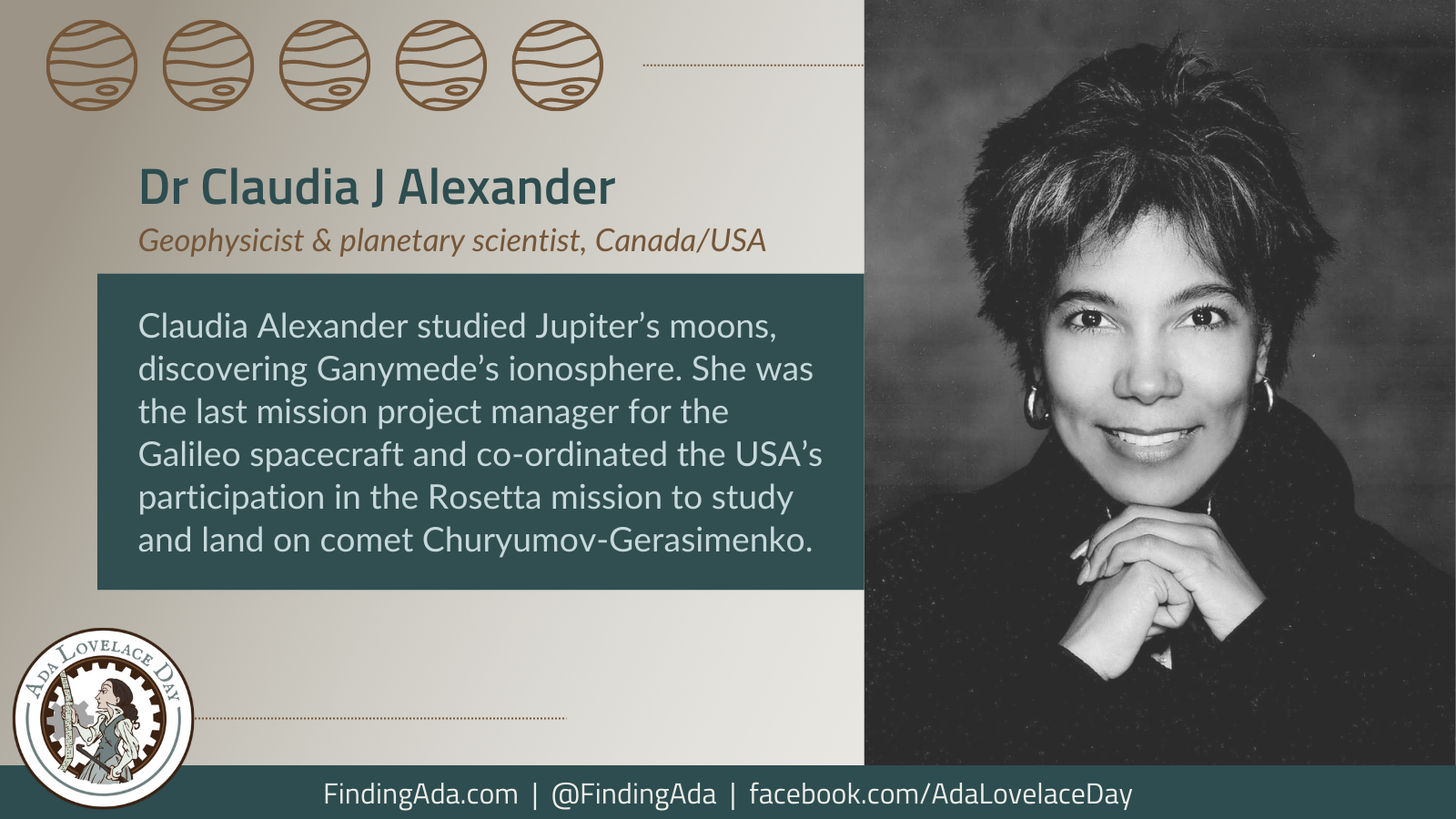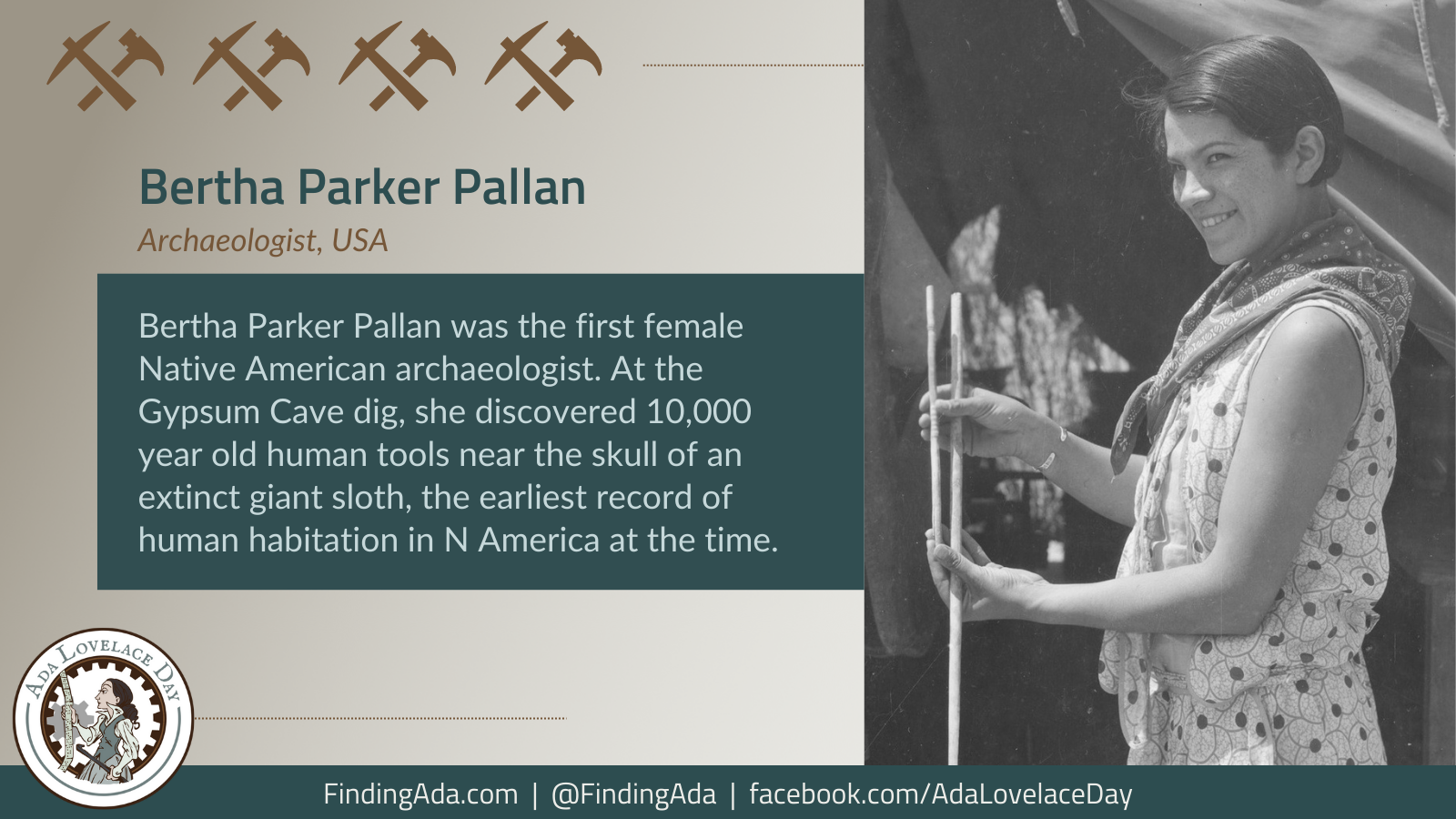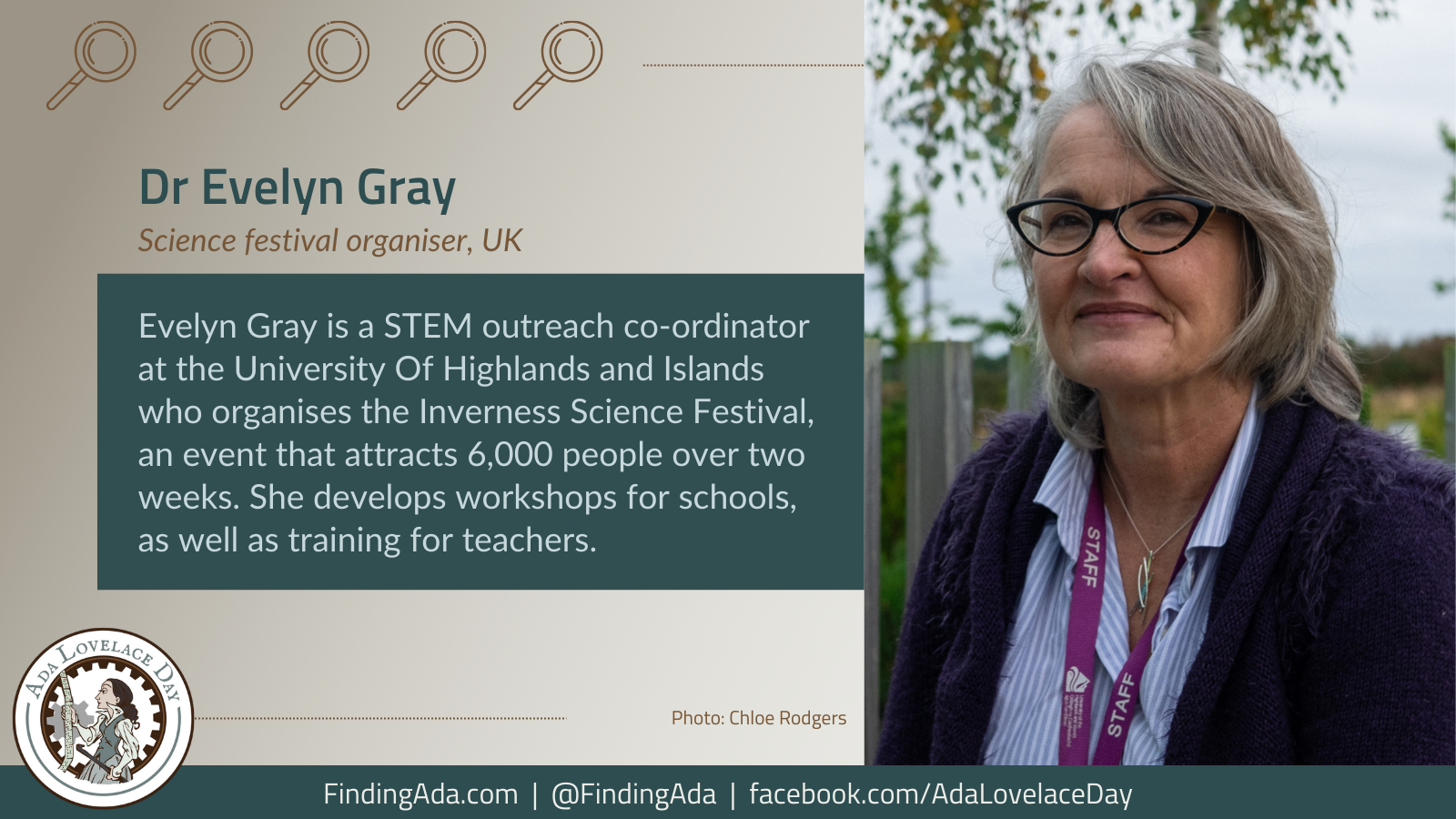
This post was contributed by Chloe Rodgers and is an extract from her Highland Women in STEM project.
Dr Evelyn Gray
Dr Evelyn Gray is STEM Projects Coordinator & Inverness Science Festival Coordinator at the University of the Highlands and Islands. She studied her BSc in Human Biology at Aberdeen University, and her PhD in Orthopaedic Surgery at Edinburgh University.
Gray was impressed by many of the good female role models at her university, who she felt displayed strength and tenacity. They supported her development, urged her to consider different opportunities and provided a ready ear when she needed it. She was taken under the wing of a female professor in anatomy, and inspired by the confidence of Dr Euphemia McGoogan, the head of cytology. She also found that other PhD students were supportive (such as Dame Sue Black).
After her studies, Gray took a lectureship in Dubai, where she had the opportunity to develop a general biological/science course for all students to take, no matter their area of study. The work was demanding, but gave her much needed experience in lecturing, science engagement and coaching. It opened her eyes to the cross curricular nature of science education, and made her consider new methods to relate the coursework to students’ own experiences. However, taking this lectureship meant that she missed out on research opportunities, and found it hard to reestablish herself in this area.
When asked what words of encouragement she could give to other women in STEM, Gray said:
“The one thing living in the Middle East and, to some extent, the Highlands, is that there are lots of opportunities for women. In these areas the job market is very open to anyone who has the skills set, or is willing to persevere, learn and develop the appropriate skills. Be open to a perpetual learning pathway. It may seem daunting, the idea of getting a degree or even studying for a PhD to be told you must keep learning. That is what life is about: a continuous learning experience, implementing that in your work life opens you up to so many future opportunities and you never know, you might find a new passion.”
You can follow her work on Twitter: @UHISTEM
Was there any particular individual who inspired you to do what you do?
I was fortunate at university to have many good role models, without any conscious bias I now realise many were strong willed women. The female professor of anatomy who took me under her wing, the PhD students (Dame Sue Black) that shared her office with me and encouraged my interest in bones, the head of cytology (Dr Euphemia McGoogan) whose confidence demonstrated inspired me to expand my horizons. All supported me in my development as a young student and as an early researcher, urging me to consider different opportunities and providing a ready ear when I needed it. Sometimes it is not about the answers but your own questions.
What advice do you have for other women to be successful in a STEM career?
My advice applies to anyone with a desire to be successful in a STEM career. Be open to the opportunities around you, do not assume become blinkered and only see one path to achieve your desire. In this modern age there are numerous routes to any career. Think about what interests you on the journey, choose your passion and follow it. A successful career should be in one you love, working in a subject you are enthusiastic about is not toil but a set of enjoyable experiences. There may be some negatives, but the positives will outweigh these. My advice is to stick with the heart’s desire, paying some attention to what the head says. Life is more enjoyable that way.
What’s the best career decision you’ve ever made?
Best career choice – a lectureship in Dubai. This offered an opportunity to develop a general biological/science course that all students, no matter their area of study, had to study for one semester. This was demanding but developed my lecturing, science engagement and coaching skills. Designing a course aimed at students from across the faculties was challenging but opened my eyes to the cross curricular nature of science education, covering the subject matter whilst attempting to relate a proportion of the course work to the students own interests and experiences.
What’s the worst career decision you’ve ever made?
Moving to Dubai! Whilst I loved the challenge of the lectureship this took me out of the research world. After a break of 8 years I found it impossible to move back into this field. I remained in science engagement but feel that a career break for whatever reason in research makes it very difficult to re-establish oneself. I did enjoy my career in the Middle East but on reflection would have preferred to combine a research career with an opportunity to lecture, moving into lecturing and course development and out academic research was the worst career decision I have made.
What words of encouragement could you give to other women in STEM?
The one thing living in the Middle East and to some extent the Highlands is that there are lots of opportunities for women. In these areas the job market is very open to anyone who has the skills set, or are willing to persevere, learn and develop the appropriate skills. Be open to a perpetual learning pathway, it may seem daunting, the idea of getting a degree or even studying for a PhD to be told you must keep learning. That is what life is about, a continuous learning experience, implementing that in your work life opens you up to so many future opportunities and you never know you might find a new passion.
